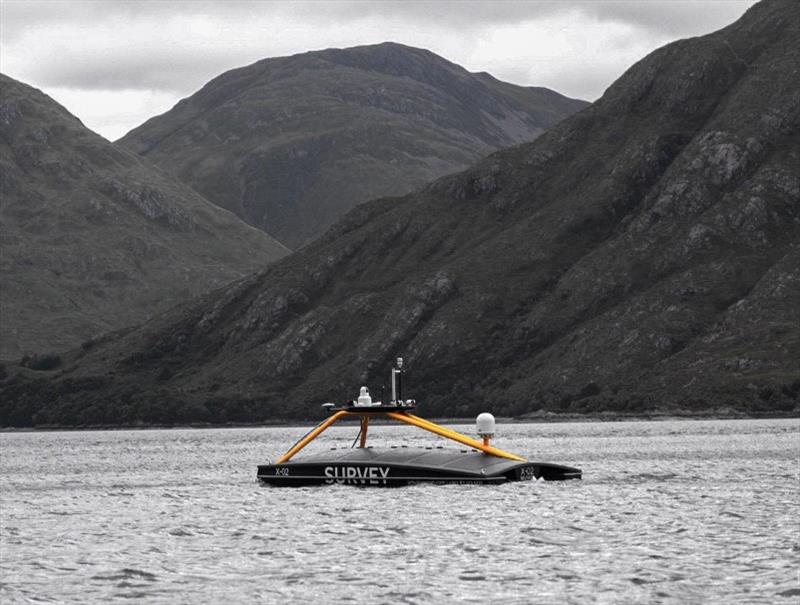
Supporting the ships of the future: A number of ground-breaking projects under way
by Helen Lewis 16 Sep 2020 19:29 BST

XOECAN vessel © XOECAN
It's an exciting time in the world of autonomous shipping, with a number of ground-breaking projects under way.
The Mayflower Autonomous Ship will attempt to recreate the original voyage of the Mayflower across the Atlantic Ocean 400 years ago. Trials will begin within the next few weeks, before the historic journey which is planned for April 2021.
Brett Phaneuf, Managing Director of MSUBS Ltd which is constructing the vessel, said: "The Mayflower Autonomous Ship is pushing the technology boundaries forward by crafting a fully autonomous, AI-captained ship that is capable of safely navigating with no human input.
"The Maritime and Coastguard Agency (MCA) has been critical in moving the program forward and providing a flexible framework to get to sea and safely test this state-of-the-art technology and in so doing helps to keep the UK as the world leader in maritime autonomy."
SEA-KIT's remotely-operated uncrewed surface vessel (USV) 'Maxlimer' recently mapped over 1000 sq. km of ocean floor on a 22-day Atlantic mission around Europe's continental shelf.
Neil Tinmouth, SEA-KIT COO said: "Our aim was to demonstrate the capabilities of current technologies to survey ocean frontiers at lower cost and with reduced impact on the environment and we are delighted to have successfully done that. The project proved the true capability of our USV design as well as its endurance and ocean-going ability. The vessel is uncrewed but it is controlled remotely by people. We believe that people will always be in the loop, but with the use of USVs like Maxlimer they are moved back to a safer, onshore environment."
Ocean Infinity's Armada will see a number of low emission vessels built which will offer crewed and uncrewed capabilities. Builds of 21m and 36m vessels are under way, as well as the development of a 70m vessel.
L3 Harris, based on the South Coast, are using their remotely operated vessels in UK waters for range of functions, whilst XOCEAN continue operations with their fleet of vessels in UK waters and overseas.
Over the past two years, XOCEAN has successfully completed over 10,000 hours of unmanned bathymetric survey off the coasts of Scotland, England and Wales as part of the UK's Civil Hydrography Programme, administered by the MCA.
The MCA, through the MARLab project and as part of the wider work of the Maritime Future Technologies team is supporting these projects individually and working on a long-term plan looking at how autonomous ships can be best regulated.
MARLab was set up in 2018 after the MCA won Government funding to begin the pioneering work of looking at the regulation for Marine Autonomous Surface Ships.
The project explores potential regulatory barriers that could impact on the testing and operation of such ships in UK waters, and looks at innovative ways to support the new and fast-evolving industry.
By looking at ways regulation can become more inclusive of such vessels, MARLab is playing a vital role in making these futuristic ships a reality, while ensuring the sea remains safe for all.
Dr Katrina Kemp, Smart Ships & Automation Policy Officer for the MCA said: "By supporting these companies which are at the forefront of new developments, we're helping push boundaries for remotely operated vessels.
"We believe that autonomous shipping will play an important role in the future of maritime in terms of reducing carbon emissions by using less fuel and allowing vessels to go to places or situations where people may be put at risk."
Maritime Minister Robert Courts said: "We're at the beginning of an incredibly exciting chapter for the maritime sector. Modernising maritime will make journeys quicker, greener, and safer - and will maintain the UK's position as a world-leader.
"By being at the forefront of this autonomous technology revolution, we can build upon the ambitions set out in our Maritime 2050 vision to ensure the UK harnesses the economic benefits of these new developments".